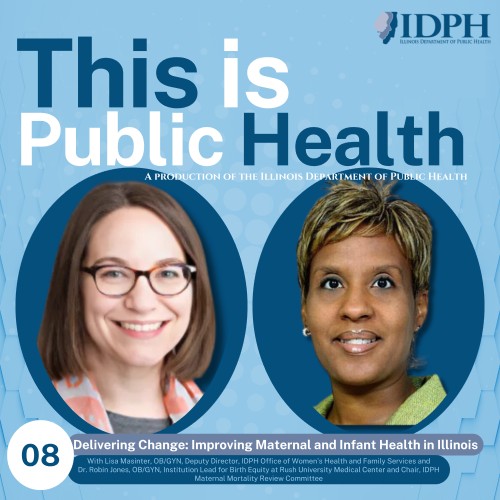
Delivering Change: Improving Maternal and Infant Health in Illinois
How did your country report this? Share your view in the comments.
Diverging Reports Breakdown
Delivering Change: Improving Maternal and Infant Health in Illinois
Dr. Lisa Masinter: Illinois remains a state and has become a true beacon for reproductive health care. Illinois was the first state to extend Medicaid through one year postpartum. In this calendar year, Illinois Medicaid is implementing new reimbursement for perinatal support service providers like doulas, lactation support providers, home visitors, and midwives who provide out of hospital births. If we really want to prevent poor outcomes in pregnancy and poor infants, we want to ensure that all pregnancies happen when people are as healthy as possible and they’re ready and planning to be pregnant. It’s a hard act to follow, and I think everybody who’s listening now can understand why Dr. Jones holds such a special place in my heart and my personal and career history.
Dr. Lisa Masinter: But what I’ll say is, I’ll touch on a few things that reflect and highlight where the state is trying to address all of the things that Dr. Jones elevated. By no means is this an exhaustive list but just a few specific examples. At the Illinois Department of Public Health, we fund multiple efforts through different funding mechanisms that are aimed to improve health throughout the reproductive lifespan.
Dr. Lisa Masinter: First, we fund the Illinois Perinatal Quality Collaborative and partnership with other funders with the goal there to implement quality improvement efforts across birthing hospitals in the state, again touching upon many of the things Dr. Jones just mentioned.
Dr. Lisa Masinter: We also fund something called Administrative Perinatal Centers that function as hubs of support for hospitals across the state to provide evidence-based care and also what’s known as risk appropriate care, so that when someone walks into whatever hospital across the state of Illinois, carrying a high risk pregnancy, that person will be brought and communicated through the Administrative Perinatal Center to a higher level of care that can manage her risk.
Dr. Lisa Masinter: Likewise, someone with lower risk can be taken care of in a lower level of care hospital and the Administrative Perinatal Centers function as the hubs of that support.
Dr. Lisa Masinter: We also are working with the University of Illinois at Chicago to create and implement an emergency department training toolkit to provide education and resources for emergency departments, specifically in places where they don’t have obstetric care and backup for pregnant and postpartum people who show up to get appropriate referral and treatment.
Dr. Lisa Masinter: Most recently, we funded twelve community organizations, and I can’t go into detail, but they’re all doing amazing work to be in the community, promoting maternal and birth equity from a community perspective and a community lens in partnership with many organizations in whatever part of the state where they’re located.
Dr. Lisa Masinter: I also want to mention our partner agencies who are working overtime to uplift efforts as well. Dr. Jones mentioned having access to care. Illinois was the first state to extend Medicaid through one year postpartum. And in this calendar year, Illinois Medicaid is implementing new reimbursement for perinatal support service providers like doulas, lactation support providers, home visitors, and midwives who provide out of hospital births, with many of these support services being shown to impact and influence equity.
Dr. Lisa Masinter: The Department of Human Services provide grants to other community partners providing home visiting services and case management services, and they’re the lead agency working on the impact of unstable housing and substance use disorder on maternal health.
Dr. Lisa Masinter: And lastly, I would like to highlight the importance of reproductive health care as a key driver to achieving maternal health equity. If we really want to prevent poor outcomes in pregnancy and poor infants, we want to ensure that all pregnancies happen when people are as healthy as possible and they’re ready and planning to be pregnant.
Dr. Lisa Masinter: Illinois remains a state and has become a true beacon for reproductive health care, as evidenced by the commitment of our governor, our partner agencies, to implement as many efforts as possible in incredibly innovative ways to preserve access to high-quality, full-spectrum reproductive health care and for that, I am incredibly grateful and proud to be a part of the effort.
Source: https://dph.illinois.gov/resource-center/communications/this-is-public-health/s2/e8.html
